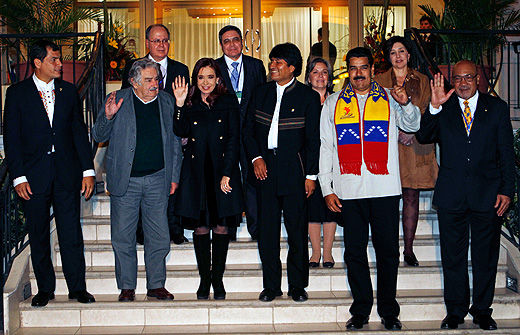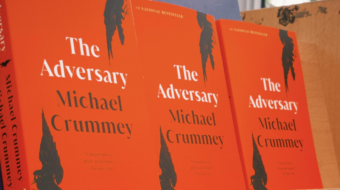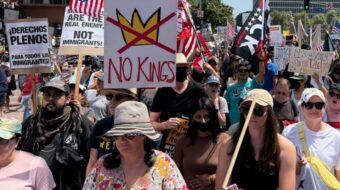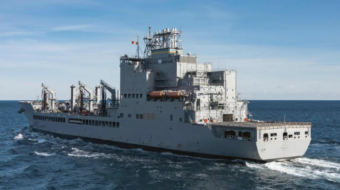
On July 4 while the U.S. was celebrating, heads of state from South America’s UNASUR (Union of South American Nations) met in Cochabamba, Bolivia, to angrily denounce what they see as a lack of respect by the U.S. and Europe for their own national sovereignity.
The special UNASUR meeting, attended by Presidents Evo Morales of Bolivia, Nicolas Maduro of Venezuela, Cristina Fernandez de Kirchner of Argentina, Rafael Correa of Ecuador, Desi Bouterse of Surinam and Jose Mujica of Uruguay, was called in response to a complaint by Morales.
On Monday, Presidents Morales of Bolivia and Maduro of Venezuela attended an international conference of natural gas exporters in Moscow. Since whistleblower Edward Snowden is still stuck in the international transit area of Shermetyevo Airport in the Russian capital while he tries to find a county that will give him political asylum, the international press asked both Morales and Maduro if their respective countries might be willing to do so. Both gave answers that defended Snowden but neither made a commitment to extend asylum to him. Maduro then continued on to a meeting in Belarus. Morales boarded Bolivia’s presidential jet to return to Bolivia.
According to Bolivian authorities, the plane was scheduled to overfly several European countries, make a refueling stop in the Canary Islands, and then head off across the Atlantic Ocean. However, the aircraft was denied permission to enter national airspace and/or landing permission in Portugal, France, Spain, and Italy. It was finally able to land and refuel in Vienna, Austria, where President Morales spent all night.
The Bolivians say that Spain had demanded the right to search the plane as a condition of letting it land in the Canary Islands. The Bolivians point out that under the 1961 Vienna Convention on Diplomatic Relations, which all the countries involved plus the United States have signed and ratified, an airplane carrying a head of state is considered sovereign territory of that state and should neither be impeded in its flight nor searched.
Evidently somebody got the idea that Morales and his party had smuggled Snowden on board the official Bolivian presidential jet so as to bring him to Bolivia and political asylum. President Morales invited Austrian authorities to come aboard the jet as it stood on the tarmac in Vienna, and they confirmed that there was no sign of Snowden (this was not officially a “search” and the Bolivians thanked the Austrian government).
The Bolivian government and its allies concluded that the interference with the jet was probably done at the instigation of the U.S.
The U.S. neither confirms nor denies this.
Relations between Bolivia and the U.S. are frosty. The Obama administration is angry with Bolivia for not subordinating its drug enforcement efforts to the U.S. Bolivia accuses the U.S. of intriguing with right wing Bolivian dissidents, and has expelled both the Drug Enforcement Agency and the Agency for International Development.
Bolivia is a member of the Bolivarian Alliance for Our America (ALBA) which includes also Cuba, Venezuela, Ecuador and Nicaragua, as well as some smaller Caribbean states. This is one of several groupings of nations in Latin America and the Caribbean who are working to reduce their dependence on the U.S. and the subordination of the whole area to U.S. policies. The continued pressure by the U.S. on socialist Cuba is another reason for friction with the whole Latin American area.
At the UNASUR meeting, all countries present denounced what had been done to Morales’ airplane as an attack on the sovereignty of the entire region and demanded explanations. Moreover, they pointed out that the physical safety of Morales and his party was endangered because of the issue of sufficient fuel. Meanwhile, French President Francois Hollande had apologized to Bolivia, saying that as soon as he had realized that Morales was on board the airplane he had countermanded the order to forbid its passage over France. However, Bolivia and its allies are want thorough explanations and apologies from the U.S. for its probable part in the incident. Morales says he may close the U.S. embassy in La Paz.
Several other regional leaders, including Colombian President Juan Manuel Santos, Organization of American States Secretary General José Miguel Insulza, Presidents Dilma Rousseff of Brazil and Ollanta Humala of Peru, as well as the Mexican Congress expressed solidarity with Bolivia, as did Russia and Cubaji. The Communist Parties of Portugal, Spain, France, Italy and the U.S. deplored the incident. United Nations Secretary General Ban Ki Moon has asked that the matter be investigated.
Bolivia says it will raise the matter in the U.N.
Photo: In the front row, left to right, Ecuador’s President Rafael Correa, Uruguay’s President Jose Mujica, Argentina’s President Cristina Fernandez, Bolivia’s President Evo Morales, Venezuela’s President Nicolas Maduro and Suriname’s President Desi Bouterse pose for photos in Cochabamba, Bolivia, July 4. Juan Karita/AP










